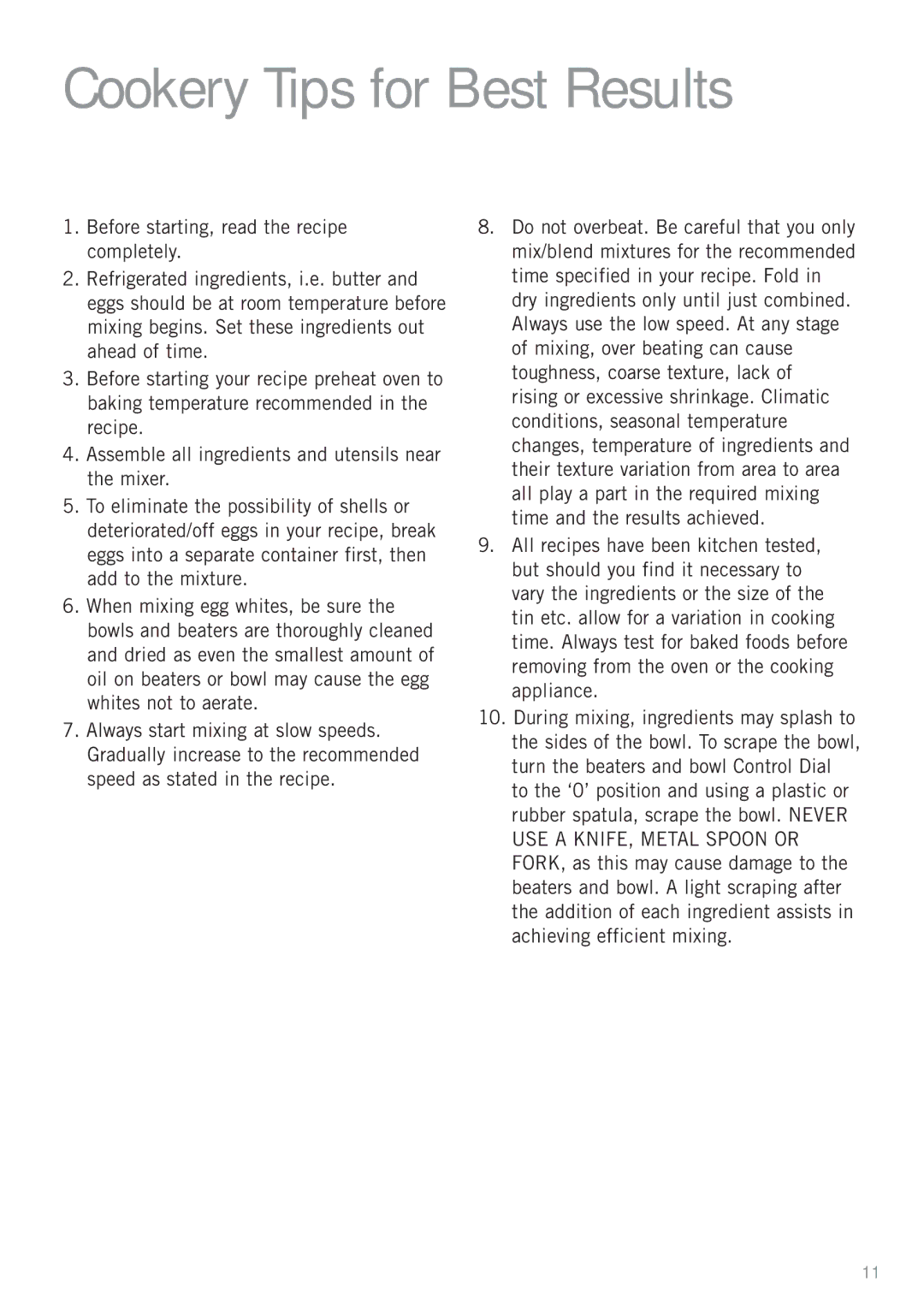MX1000, MX1000K, MX1000P specifications
The Sunbeam MX1000P, MX1000K, and MX1000 stand out in the realm of electric mixers, catering to both amateur and professional bakers seeking convenience without compromising quality. Each model embodies Sunbeam’s commitment to innovation and durability, featuring unique characteristics and advanced technologies.The MX1000P is designed for users who cherish versatility in their kitchen. Equipped with a powerful 350-watt motor, it effortlessly handles various mixing tasks, from whipping cream to kneading dough. With its 12-speed settings, users can precisely control the mixing intensity, whether they're preparing delicate meringues or heavy bread dough. The mixer’s robust, ergonomic design ensures comfortable handling, making long mixing sessions fatigue-free. A notable feature is its Easy Clean attachment system, allowing for quick and simple switching between the included beater and dough hooks. The MX1000P also comes with a well-sized stainless steel bowl, enhancing performance and ease of use.
Moving on to the MX1000K, this model emphasizes style without sacrificing functionality. Similar to its counterpart, it boasts a powerful motor and variable speed control, but with additional emphasis on aesthetic appeal. The MX1000K is available in a variety of attractive colors, making it a stylish addition to any kitchen. Its compact design saves counter space, while the balanced weight ensures stability during operation. A unique feature is its built-in spatter guard, which helps keep the mixing area clean, a convenience that any baker will appreciate. The MX1000K also offers an integrated cord storage, promoting a tidy kitchen environment.
Finally, the MX1000 model itself is a classic choice for those looking for effectiveness and reliability. This mixer also features a robust motor and various speed options. The MX1000 is particularly noted for its durability, using high-quality materials that withstand daily use. It incorporates a powerful mixing action, ensuring thorough blending of ingredients, critical for achieving the perfect batter or dough. Its detachable bowl and attachments make for easy cleaning and maintenance.
In summary, the Sunbeam MX1000P, MX1000K, and MX1000 mixers are excellent choices for any kitchen. With powerful motors, multiple speed settings, and convenient features designed for ease of use and maintenance, these mixers cater to a wide range of baking needs. Each model showcases Sunbeam's commitment to quality and innovation, ensuring that users can achieve consistent results whether they are novice bakers or experienced chefs.
